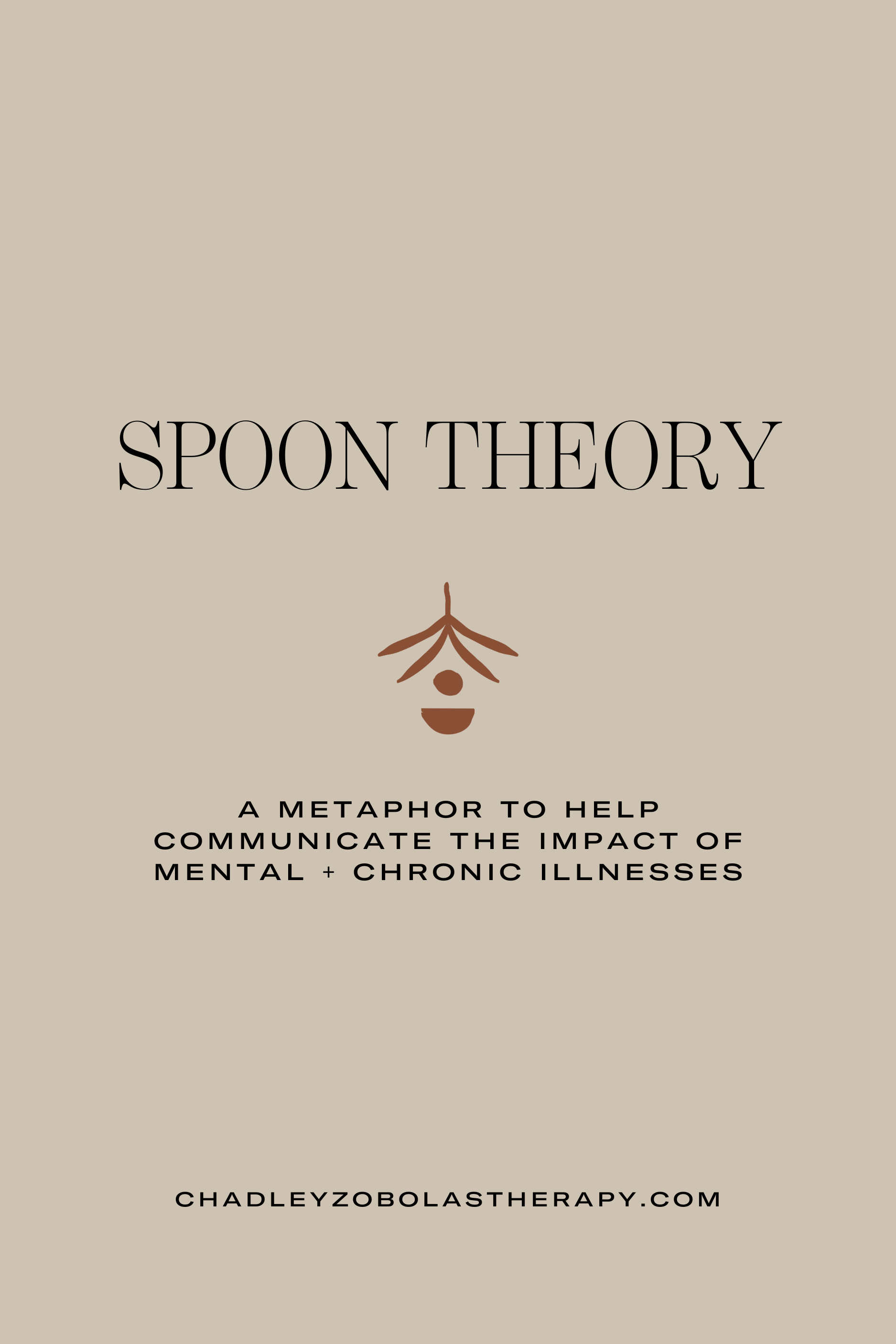Spoon Theory: A Metaphor to Help Communicate the Impact of Mental and Chronic Illnesses
By Jordan Kurtz, MA, LPCC, Denver Trauma Therapist
“Good” If You Do, “Bad” If You Don’t.
In a capitalist society, messaging about effort pervades not our only business worlds but the way we conceptualize work ethic as a whole.
“Pull yourself up by your boostraps”, “You miss 100% of the shots you don’t take”, “Mind over matter”, and “We make our own successes” are examples of messages that communicate if only we work hard enough, we will be rewarded as we please.
In many respects this mentality can be motivating, reminding us that our self-efficacy can prevail and often, our efforts do pay off. However, the dark underbelly of this philosophy is that it implies you are “good” if you work or do, and “bad” if you don’t. Moreover, it doesn’t account for invisible and visible barriers that prevent us from being recognized, accepted or rewarded, like race, SES, disability, and mental illness.
Trying to explain to loved ones or acquaintances why your depression won’t allow you to get out of bed, your anxiety paralyzes you from attending the happy hour, your body dysmorphia prevents you from attending the wedding, etc is often met with frustration at best and judgement at worst.
“Just get over it!”, “It’s not that bad”, and “You’ll be fine” are messages we may receive in response that likely validate our own negative thoughts and feelings about ourselves.
When our experiences are not shared by others, sometimes the best way to communicate impact is through analogy, and below I will share a tool that helps ourselves and others visualize the weight of illness.
Spoon Theory
In 2003, writer Christine Miserandino was eating dinner with a friend who inquired about her experience of living with Lupus. Christine recalled feeling perplexed: this same friend saw her walking daily with a cane, throwing up in pain, and had attended several doctor’s appointments with her- what more was there to know? Christine proceeded to describe her pill regimen and other physical logistics, but her friend sought deeper meaning by asking “What is it like to be you living with Lupus?”
Spontaneously, Christine perused the surrounding room and grabbed a bouquet of spoons, thus birthing Spoon Theory.
She explained to her friend that most able-bodied people begin their days with theoretically infinite possibilities, desires and energy, knowing they can largely do what they wish without considering the impact of their efforts (i.e. an untarnished wealth of spoons).
Christine handed the bundle of spoons to her friend and asked her to begin describing her typical routine; whenever a task was mentioned, Christine took away a spoon. Opening her eyes and physically moving herself from bed? 1 spoon. Washing her hair and shaving her legs in the shower? 2 spoons. Choosing her clothes? Another spoon- and potentially more if she had to consider clothing that would accommodate the aches or fever that often accompany Lupus.
Her spoon pile dwindled and her friend explained in protest, “My day has hardly begun”. Christine explained she would have to choose what she did with the rest of her day wisely as, “when the spoons are gone, they’re gone”. Her friend grappled with giving up doing laundry to cook, passing up the gym to drive home from work safely, forgoing seeing a friend to finish notes. Deliberation about her priorities and hopes continued as spoons were spent and comprises were made. At the end of her “day”, her friend burst into tears and asked Christine empathically, “How do you do it? Do you really do this every day?”
Christine acknowledged:
“Its hard, the hardest thing I ever had to learn is to slow down, and not do everything. I fight this to this day. I hate feeling left out, having to choose to stay home, or to not get things done that I want to.…When other people can simply do things, I have to attack it and make a plan like I am strategizing a war. It is in that lifestyle, the difference between being sick and healthy. It is the beautiful ability to not think and just do. I miss that freedom.”
The Bright Side
Despite limitations that our mental illnesses present- or in Christine’s case, her Lupus- awareness of our “spoons” on a routine basis and the ability to communicate our capabilities to ourselves and others can lend powerful perspective.
Christine noted too:
“I see this as a blessing. I have been forced to think about everything I do. Do you know how many spoons people waste everyday? I don’t have room for wasted time, or wasted “spoons” and I chose to spend this time with you.”’
How to Utilize Spoon Theory Yourself
Consider needs and wants of everyday life and how many “spoons” that corresponds to
Permit yourself kindness on days when anxiety, depression, etc is greater and acknowledge you will have lesser spoons to offer
Communicate limitations or ask for help from employers, friends and family
Remember no number of spoons kept or given is “right” – the window of tolerance for doing varies person to person.

